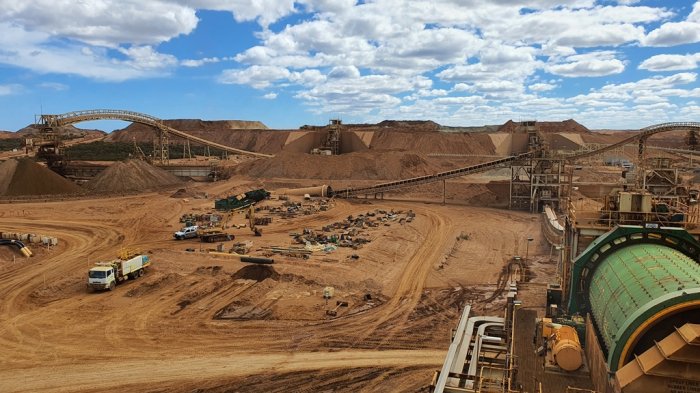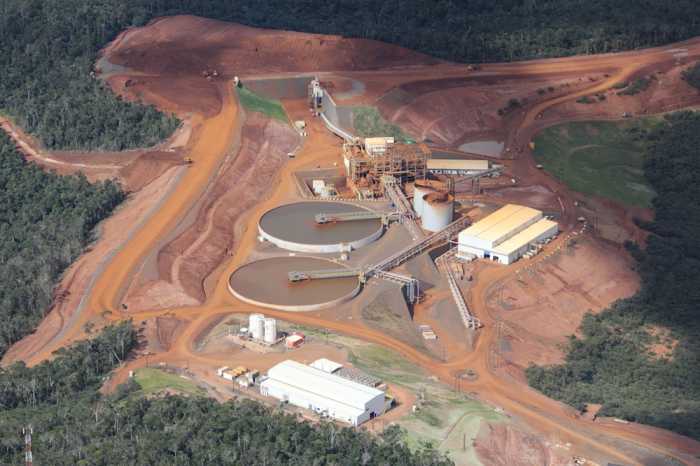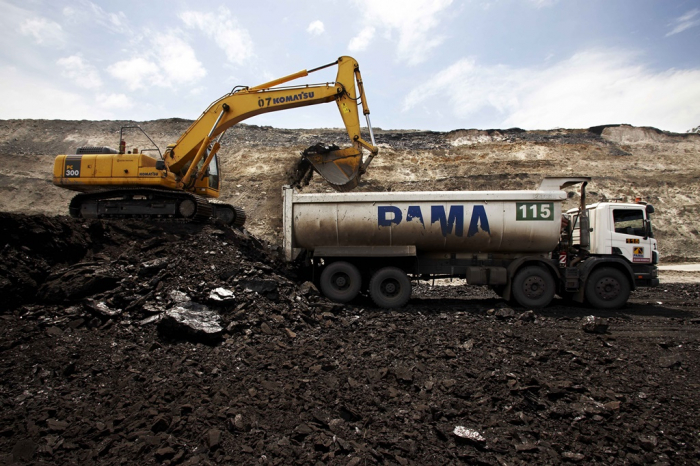Energy
Korea’s debt-ridden public companies selling off overseas coal mines
The move is designed to ease their debt burden as well as stay in sync with a global trend toward carbon neutrality
By Apr 10, 2023 (Gmt+09:00)
3
Min read
Most Read
LG Chem to sell water filter business to Glenwood PE for $692 million


Kyobo Life poised to buy Japan’s SBI Group-owned savings bank


KT&G eyes overseas M&A after rejecting activist fund's offer


StockX in merger talks with Naver’s online reseller Kream


Mirae Asset to be named Korea Post’s core real estate fund operator



South Korea’s debt-ridden public enterprises are selling off their stakes in overseas coal mines to improve their financial status and stay in line with global moves to embrace eco-friendly energy sources.
State-run companies, however, will continue to hold or increase their holdings in strategic resource assets, including nickel, a key mineral for electric vehicle batteries.
Some analysts, however, warned of any hasty stake sales, which could face a backlash from the government and the public for unloading them in “dirt-cheap” deals.
Korea Coal Corp. said on Monday it has begun preparatory work to sell a controlling stake in the Khotgor Shanaga coal mine in Mongolia, which it acquired in 2010. The mine is estimated to contain 540 million tons of coal.
Korea Coal Corp. purchased a 51% stake in the Mongolian coal mine for about 10 billion won ($7.6 million) in 2010 and later spent an additional 18 billion won to raise its stake in the mine.

The state-owned company needs money badly as its financial standing remains in a complete capital erosion, which means its debt has overwhelmed its equity capital.
Industry sources said a Mongolian company has shown interest in buying the coal mine for about 40 billion won.
Meanwhile, Korea Resources Corp. is also in the process of selling its stakes in two coal mines in Australia — an 82.3% stake in the Wyong mine and a 2.5% stake in the Narrabri mine.
Korea Electric Power Corp. (KEPCO) plans to sell a stake in the Bayan coal mine in Indonesia.
KEPCO owns 20% of the Indonesian mine, whose value is estimated at 800 billion won, through its five power-generating affiliates.
“We are pushing ahead with the sale of bituminous coal mines that do not fit the global eco-friendly trend,” said a government official.
NICKEL, COPPER MINES
Public companies, however, won’t sell their stakes in mineral mines such as nickel and copper, which are much sought after by battery makers.
Last year, Korea Resources Corp. said it wouldn't sell its stake in the Ambatovy nickel mine in Madagascar and the Cobre Panama copper mine in Panama.

In 2006, Korea Resources invested 2.2 trillion won to buy a 33% stake in Ambatovy, a joint venture of nickel and cobalt mines. In 2009, the state-run company acquired a 10% stake in Cobre Panama, a copper mine in Panama, for 835 billion won.
In 2008, Korea Resources purchased a 76.8% stake in the world’s fourth-largest copper mine, located in El Boleo, Mexico, for 1.7 trillion won.
The state-run company is mulling the sale of its stake in the Boleo copper mine amid concerns over duplicate investments.
During past administrations, Korea Resources Corp., Korea National Oil Corp., Korea Gas Corp. and other state-run companies stood at the fore of government efforts to secure overseas resources, including coal mines.
These aggressive overseas investments in mines in Africa and South America led to snowballing debts at the state-run entities.
Under the Yoon Suk Yeol government, however, they have been forced to unload their stakes in loss-making overseas resources projects in line with the new government’s pledge to restructure debt-laden state energy companies.
Industry officials said battery makers such as LG Energy Solution Ltd. and SK On Co. are closely cooperating with public companies to raise their stakes in mines that produce battery minerals.
“Resource-rich countries tend to prefer engaging with the government rather than private companies when discussing business deals, so public-private collaboration is essential,” said a Korean government official.
Write to Han-Shin Park and Sul-Gi Lee at phs@hankyung.com
In-Soo Nam edited this article.
More to Read
-
 EnergyKorea Coal Corp. to sell Mongolian mine amid energy resource boom
EnergyKorea Coal Corp. to sell Mongolian mine amid energy resource boomApr 10, 2023 (Gmt+09:00)
1 Min read -
 ESGResponsible mineral sourcing key to Korean battery materials makers
ESGResponsible mineral sourcing key to Korean battery materials makersFeb 13, 2023 (Gmt+09:00)
2 Min read -
 EnergyS.Korea to cut coal's share of energy usage to under 20% by 2030
EnergyS.Korea to cut coal's share of energy usage to under 20% by 2030Nov 25, 2022 (Gmt+09:00)
1 Min read -
 Corporate investmentLX International’s value soars on cryptocurrency, GAM mine in Indonesia
Corporate investmentLX International’s value soars on cryptocurrency, GAM mine in IndonesiaApr 27, 2022 (Gmt+09:00)
2 Min read -
 BatteriesChina’s tighter grip on minerals boosts costs for Korean battery makers
BatteriesChina’s tighter grip on minerals boosts costs for Korean battery makersApr 12, 2022 (Gmt+09:00)
4 Min read
Comment 0
LOG IN


